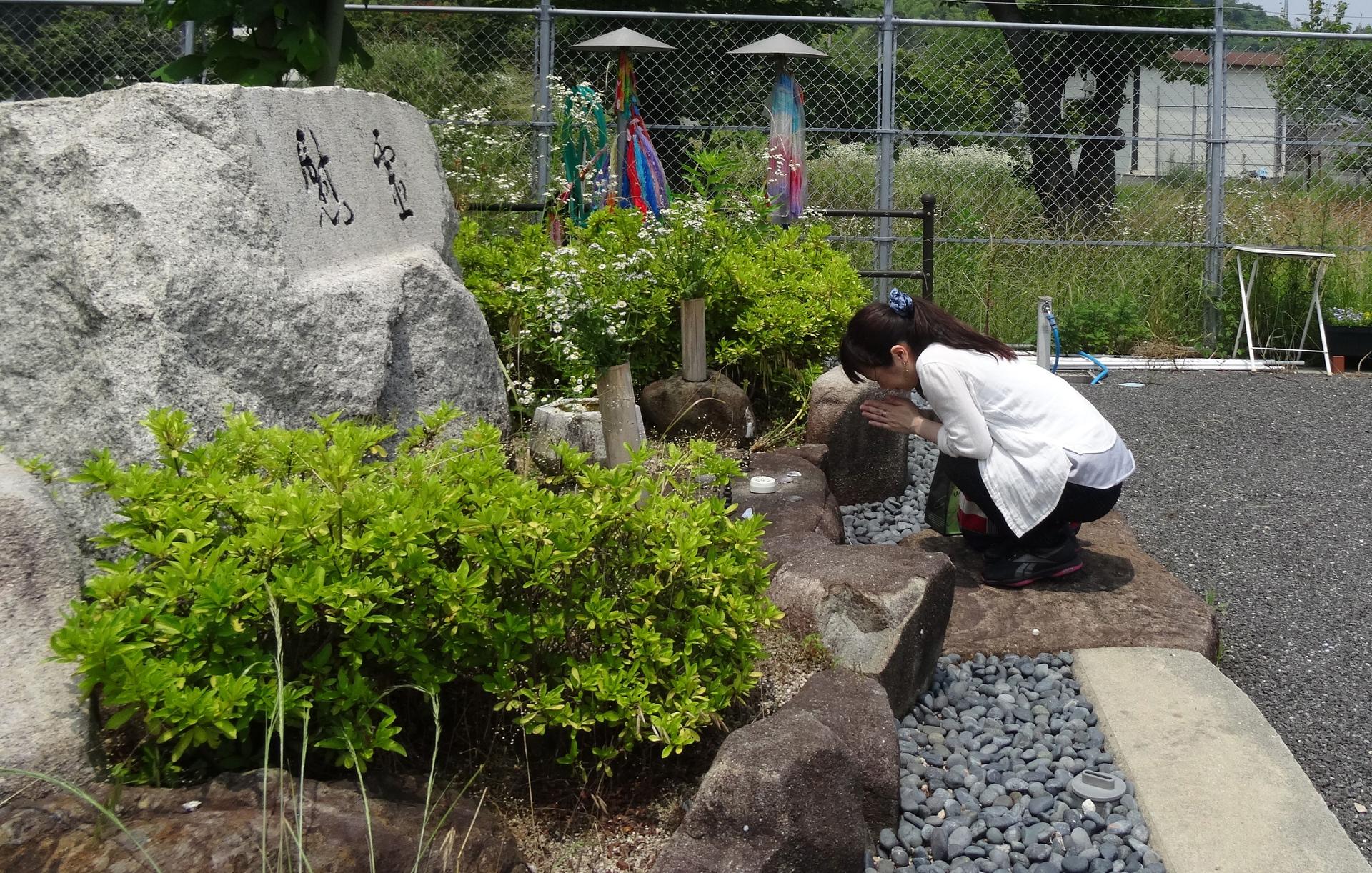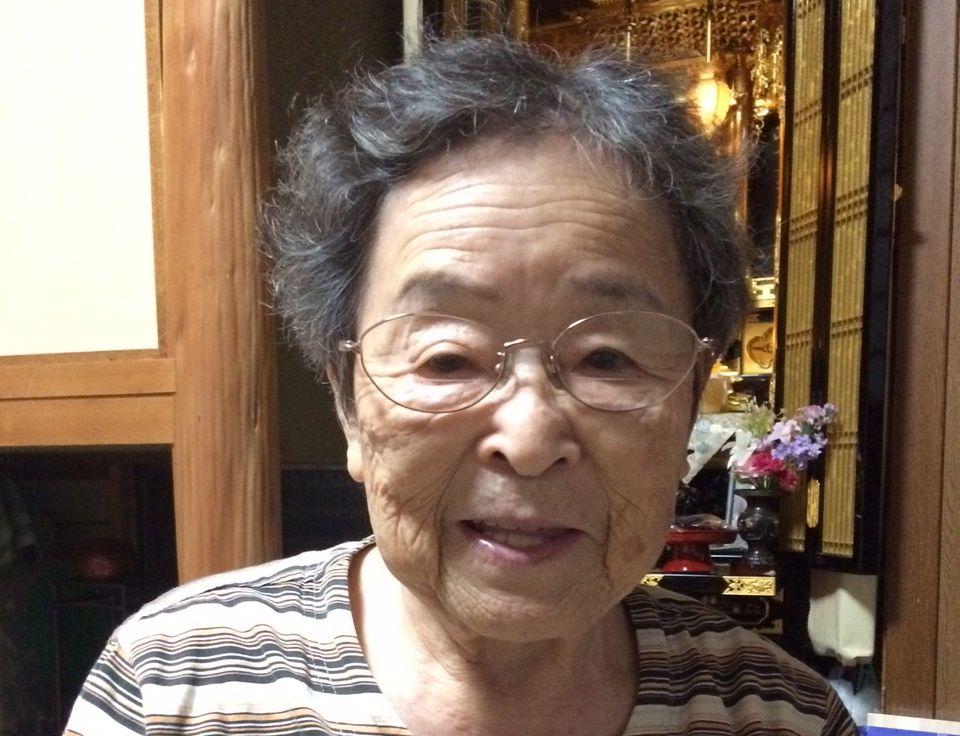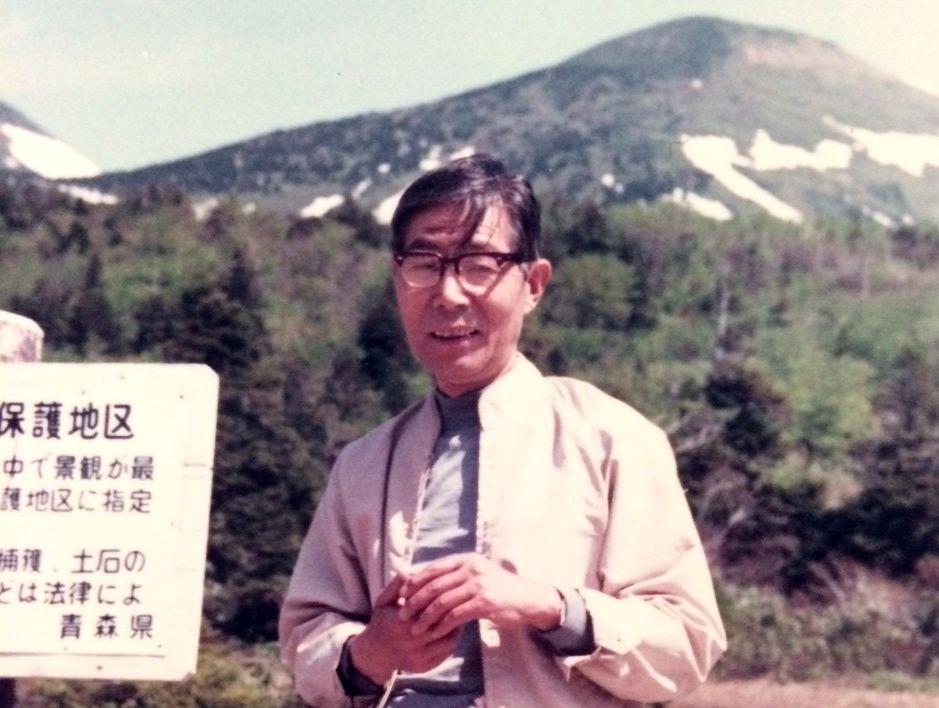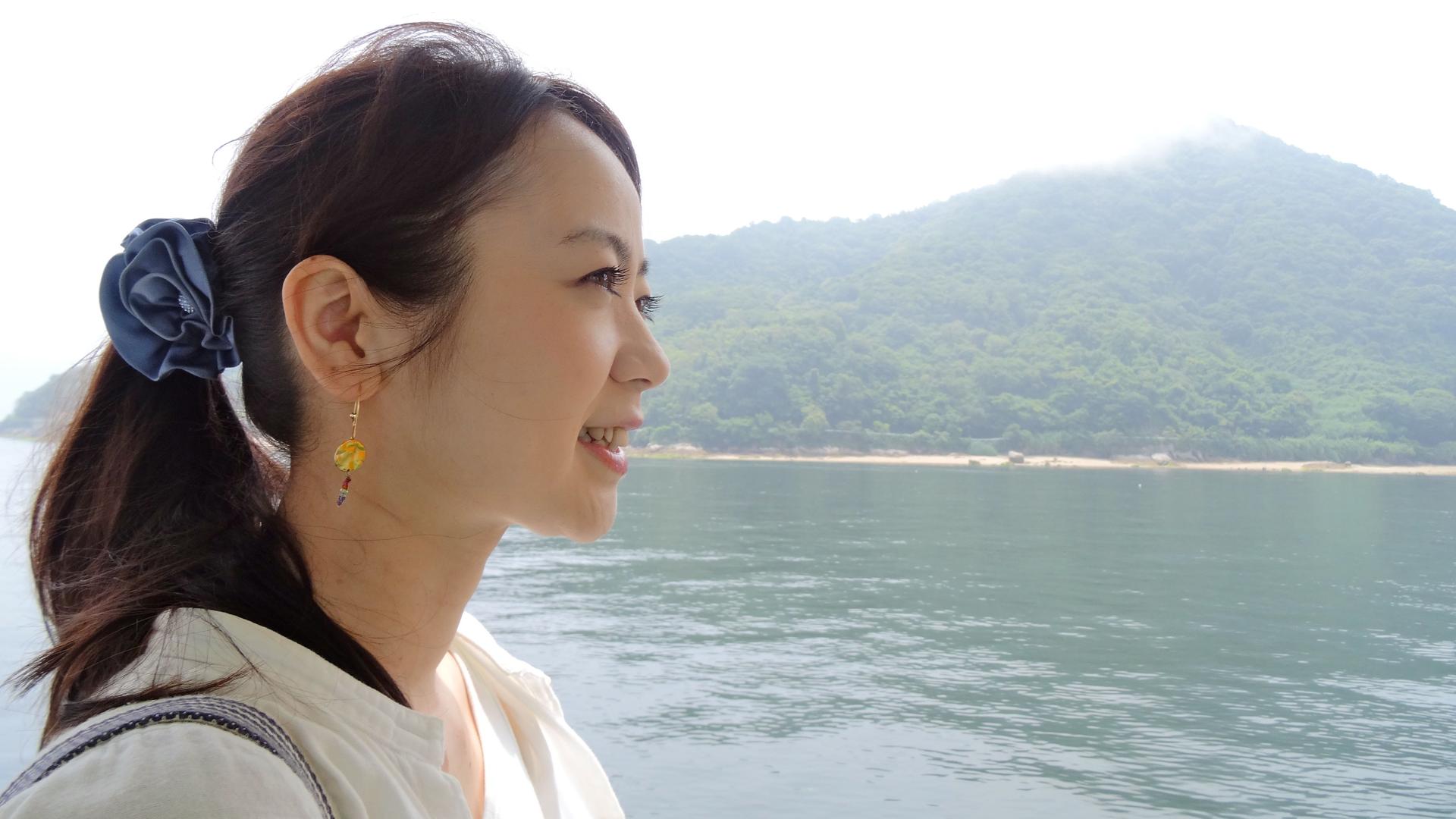Aya Kano on board a ferry heading for the island of Ninoshima.
On a recent steamy morning, I took a 20-minute ferry ride from Hiroshima to the small island of Ninoshima.
My traveling companion is Aya Kano, a reporter with Hiroshima’s main newspaper.
Kano first visited Ninoshima a decade ago when she was 24 years old. It was a trip that changed her outlook on life — the first, as it turned out, in a series of significant moments that have caused her to re-evaluate her sense of family and country.
We drive for a couple of miles over a hill to the other side of the island, and head for a shrine next to an intersection. Across the road is a small park where there was once a mass grave.

“They wanted to cremate people from Hiroshima here,” Noburu Hirata, an islander who looks after the shrine, tells us. “But there were too many of them.”
So some of the bodies were buried. Many have since been exhumed.
When Aya Kano, the reporter, first came to the island, it was on assignment. Her newspaper wanted a story on the latest exhumation. What she saw took her breath away: piles of bones.
That may not seem especially surprising. But in a country that cremates more than 99.8 percent of its citizens, the sight of human bones suggests a complete breakdown of the natural order of things. Kano imagined she could hear the souls of these bodies crying out to her.
“I thought that they were saying, ‘I don’t like to be here,’” she says. “‘Why do I have to be here?’”
It was then that Kano realized that the atomic bomb wasn’t just stale history. She had been bored by people’s A-bomb stories at school. She hadn’t even cared at home, where she knew that her own grandparents were survivors of the bomb. But she cared now.
“I asked my grandmother to tell her story,” says Kano. “Then, I changed my mind — at that time.”

A couple of years later, her newspaper gave her the job of covering the Shimane nuclear power plant, not far from Hiroshima.
“At that time I believed the safety myth of nuclear power plants,” says Kano. “I had no question about it.”
The owners of this plant had long wanted to expand capacity. But scientists warned of a recently discovered fault line that could make it prone to earthquake damage. The company insisted that the plant could withstand a major earthquake.
“I believed that,” she says. “I wrote as they explained, that it is safe.”
When the fears of scientists were realized, it wasn’t at the nuclear plant Kano was writing about, but years later and hundreds of miles away, in Fukushima: an earthquake, a tidal wave, nuclear meltdown, radiation leaks, local residents evacuated.
It caused Kano to question her own thinking, again. By then, she was no longer reporting on nuclear energy, so she felt she couldn’t even set matters straight.
And then there was her uncle. He worked for a subcontractor of TEPCO, the company running the Fukushima Daiichi Nuclear Power Plant. And he lived near the plant. After the accident, he and his family had to leave their home.
“At that time we were very worried about him,” says Kano. So far though, he is OK.
I ask Kano if she talks with her uncle about concerns over nuclear safety.
“He doesn’t want to talk much about the accident,” says Kano. “But he did say ‘I thank TEPCO.’ He said only that.”
Thanking TEPCO may have made sense to her uncle, a veteran worker in nuclear plants. But it unsettles Kano. It makes her think that she failed in her duty to properly inform the public about the perils of nuclear power. It still plagues her: the Japanese government is currently deciding when to re-start many of the country’s nuclear power plants. They have all been offline since the Fukushima accident.
And then there is the question of memory. Although the memory of Hiroshima has become important to her, Kano is afraid the memory of Fukushima is fading.
“I’m forgetting about Fukushima,” she says. “Even though my uncle was evacuated, even though this relative of mine is a victim of the accident. Even so, I am forgetting.”
Kano is tough on herself. As she sees it, she’s confronting her own flaws. She visits Ninoshima. She also tries to talk with her relatives, about their crossed paths with two nuclear catastrophes.
But talking with her grandmother about Hiroshima has become difficult. There are family tensions that get in the way. And she has not been able to break through the strained conversations with her uncle about Fukushima. All of which leaves her with a question.
“If even the smallest unit in society, the family, cannot find a way to discuss these things, then how can we move forward?”

“Because of the bomb my grandpa and my grandma get married,” she says. “Then my father was born. So if atomic bomb hadn’t been dropped, then I am not here.”
You can’t exactly celebrate a legacy like that. But maybe you can do what Aya Kano has done, and come to terms with it over time — and eventually pass it on.
oembed://https%3A//www.youtube.com/watch%3Fv%3DVIHGrKEzbz4%26feature%3Dyoutu.be
This is the third in a series of reports supported by the United States-Japan Foundation.
